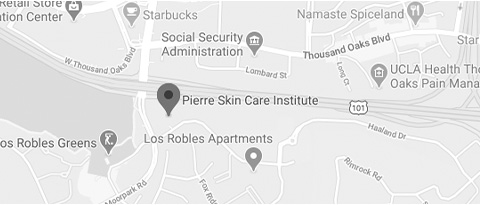What Are Common Signs of Skin Cancer?
In the summer, when the sun’s rays are most intense, it’s important to limit unprotected sun exposure to lower your risk of sunburns, accelerated skin aging, and skin cancer—an increasingly common disease. Though a skin cancer diagnosis is a scary prospect for many, it’s much easier to treat if it’s spotted in its earlier stages, when it hasn’t yet spread. The problem can be cured if it’s found and treated soon enough. Skin cancer lesions typically first appear as changes to the appearance of the skin. But what does a skin cancer spot look like? Our Westlake Village-based team at the Pierre Skin Care Institute has some advice to help you identify what cancerous marks could look like—although the only way of knowing for sure if a mark on your skin is cancer is to set up a consultation with a trusted provider who can make the appropriate diagnosis.
Experienced dermatologists agree that it’s a good idea to have routine skin exams by a professional and to check your own skin on your entire body at least once a month for any unusual changes or suspicious spots. Start at your head and work your way down the body. Don’t forget hidden or less obvious areas such as in between the fingers and toes, the soles of the feet, and the backs of the knees. Here are some of the common signs of skin cancer to watch for as you go:
If you’re checking for possible signs of skin cancer, it’s important to know the ABCDEs of melanoma. ABCDE is an acronym that stands for “Asymmetry, Border, Color, Diameter, and Evolving.” Normal freckles and moles are asymmetrical, meaning that if a line were to be drawn down the center, the two halves would be identical, so an asymmetrical mole can be a cause for concern. There should be a clear border rather than a blurred one, moles shouldn’t be irregular colors—such as red, pink, white or blue—and lesions should be smaller than the size of a pencil eraser. Any signs of a spot changing over time—such as increasing in size, crusting, or bleeding—can be a red flag.
Contact Pierre Skin Care Institute if you have a mole, spot, or lesion you would like examined more closely. Call 805-496-9190 or fill out a contact form to set up a consultation.




